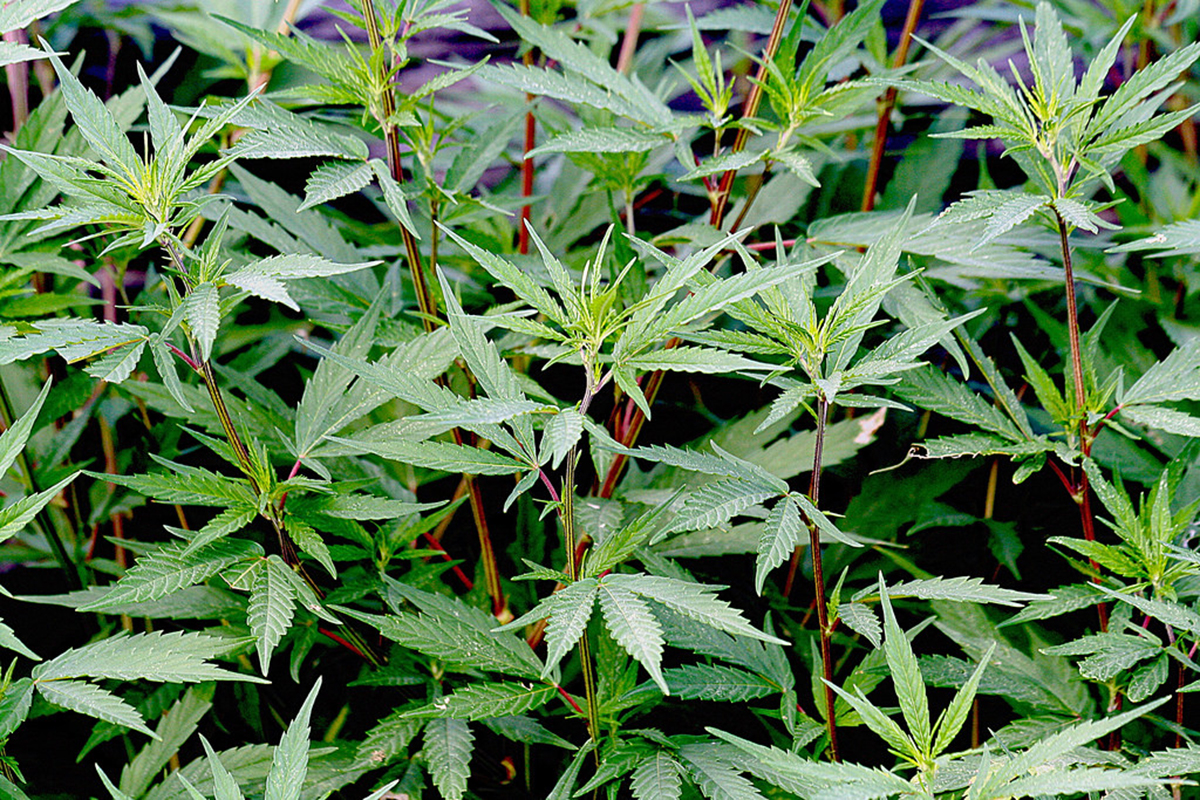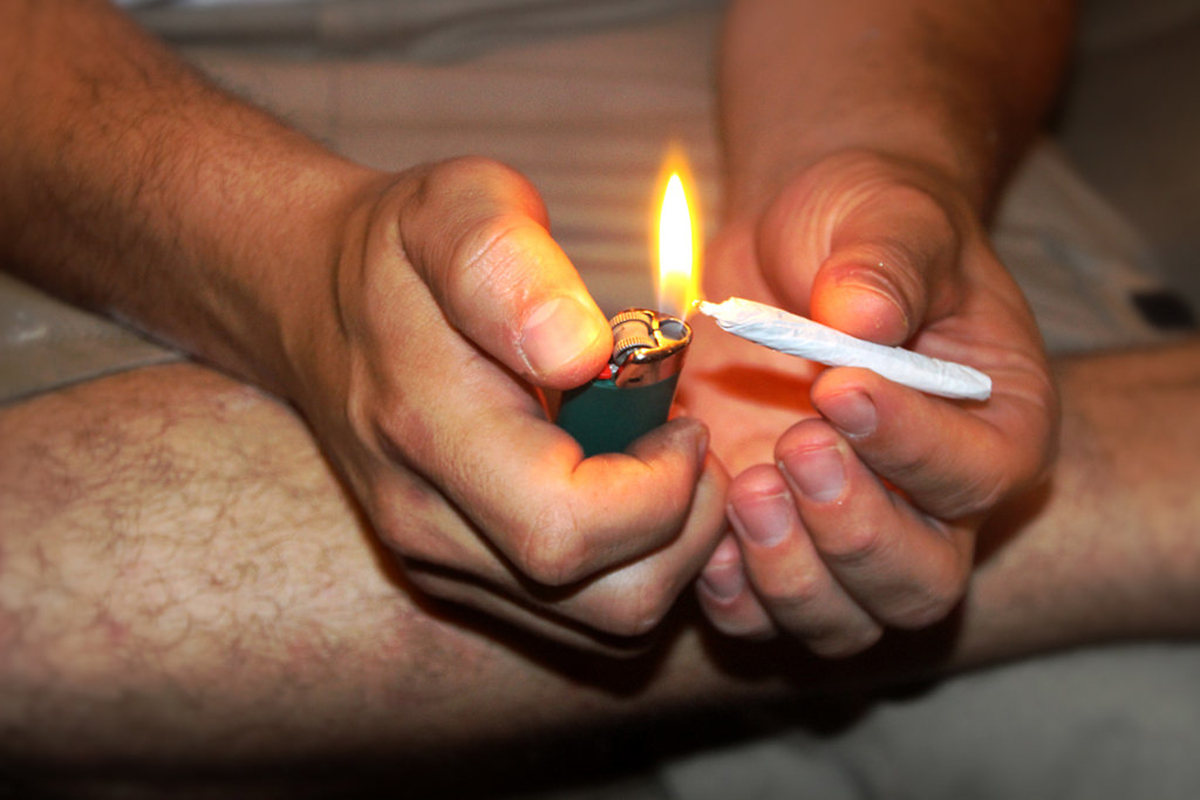Cannabis is increasingly widely valued medicinally. While there's a lot we don't know about the THC molecule, and there's way more than THC in cannabis anyway, one effect that's pretty solidly established is this: Weed makes you hungry, man. That makes it popular for in-jokes for potheads, from the Fabulous Furry Freak Brothers to Harold and Kumar. But it also makes it a very useful medicine for people who have lost their appetites for medical reasons. When there's a drug that can help people who are on heavy chemo for AIDS or cancer to eat again, it makes sense to prescribe it.

Let's start by talking over how cannabis works in general. When you take cannabis, however you take it, the psychoactive molecules, including but not limited to THC (Tetra Hydro Cannabinol, for those of you taking notes), enter your body and they bind to receptor sites. Receptor sites are places where your body is designed to accept certain molecules that are meant to control your physical or mental states. In the case of cannabis, cannabinoids — the "drug" molecules in cannabis — bind to sites that are designed to accept cannabinoids.
Wait, What — We're Built To Take Cannabis?
Well, only in the same way that we're built to take heroin, amphetamines or other drugs.
These substances work on us because they do a similar job to chemicals we produce ourselves. Heroin binds to receptor sites that are designed for "endorphins" — a contraction of "endomorphines", or morphine-like substances that are made inside the body. These are natural euphorics and painkillers that we make inside ourselves to regulate our minds and bodies. Ever gone for a long, hard run and afterwards felt really relaxed and happy - high, in fact? That's endorphins. You were strung out on your own natural morphines.
Or maybe you've done something terrifying. I abseiled down the side of a tall building when I was 16. At the bottom, I was shaking and excitable, talkative and energetic — just like someone on amphetamines, because I was affected by adrenaline. That's known to American doctors by its other name, epinephrine, and is chemically similar in structure and effect to amphetamines, which is why the effects are so similar.
In each case, we're talking about "endogenous" analogs of "exogenous" (from the outside) chemicals, and cannabinoids are no different. We have cannabinoid receptors because we make cannabinoids inside ourselves. This isn't just a chemistry class - it's important to understand this to understand how cannabinoids work and the effects cannabis can have on appetite.
Sounds like something we should step carefully around, right? In fact one reason why scientists don't really understand what THC does too well is probably because it does everything.
Cannabis helps reduce anxiety and aids sleep. Since sleep is seriously important in healing and general health, that's an advantage for people who, give that they're on chemo for potentially fatal illnesses, might be a little worried. Score one for marijuana.
See Also: What Do We Know About Medical Marijuana?
And yes, it stimulates appetite very significantly.
In the short term.
Trouble is, many medical marijuana users are using cannabis for the long term.
What happens then?
The Cannabis Paradox: What Makes You Hungry Kills Your Appetite
Because the receptor network we talked about earlier is so important, the body is really good at regulating its effects. If you've never been exposed to cannabis before, a small amount will trigger intense psychoactive effects and make you both very hungry and, a while later, very sleepy.

But if you've been chronically exposed to marijuana and then you stop using it, guess what? Can't eat. Can't sleep. Anxious. In pain.
That's right. Chronic exposure doesn't exactly mean tolerance. What happens is your body stops producing its own cannabinoids and shuts down production sites, and you lose receptors too. That means that you're facing diminishing returns: the more cannabis you use, the more you need to get the same effect and eventually, to maintain homeostasis. The receptor network tries to get "back to normal", fighting against the signals you're sending it by filling your body with exogenous cannabinoids.
How Can You Get Around It?
There is an effective means of preventing cannabis' long term effects. Taking regular breaks of three to five days' duration allows the receptor network to recover to some extent, and it's the receptors we want to regrow above all. Just a few days can have significant effects on receptor regrowth. Obviously that exposes you to the pain that's another sold reason to take cannabis, but if you can stand to switch to another pain management system, like Vicodin, for a few days, it can help your marijuana therapy be more effective in the long term.
The other angle you can approach things from is to increase your own production of endogenous cannabinoids. That will help to stimulate your appetite while you're on your "marijuana fast". So what stimulates endogenous cannabinoid production? Well, long hikes or any other form of physical exercise will help. That's hardly great advice if you're using marijuana therapy for an illness that confines you to a wheelchair, for instance, but if it's an option for you it can be effective.
See Also: Are Females More Susceptible To The Effects Of Marijuana?
If you think I've hit the nail on the head, or you'd like to pick me up on something — or you just want to know more! — get hold of me in the comments section below.
- Photo courtesy of M. Martin Vicente via Flickr: www.flickr.com/photos/martius/14460520194
- Photo courtesy of Halseike via Flickr: www.flickr.com/photos/99624358@N00/15274524149

